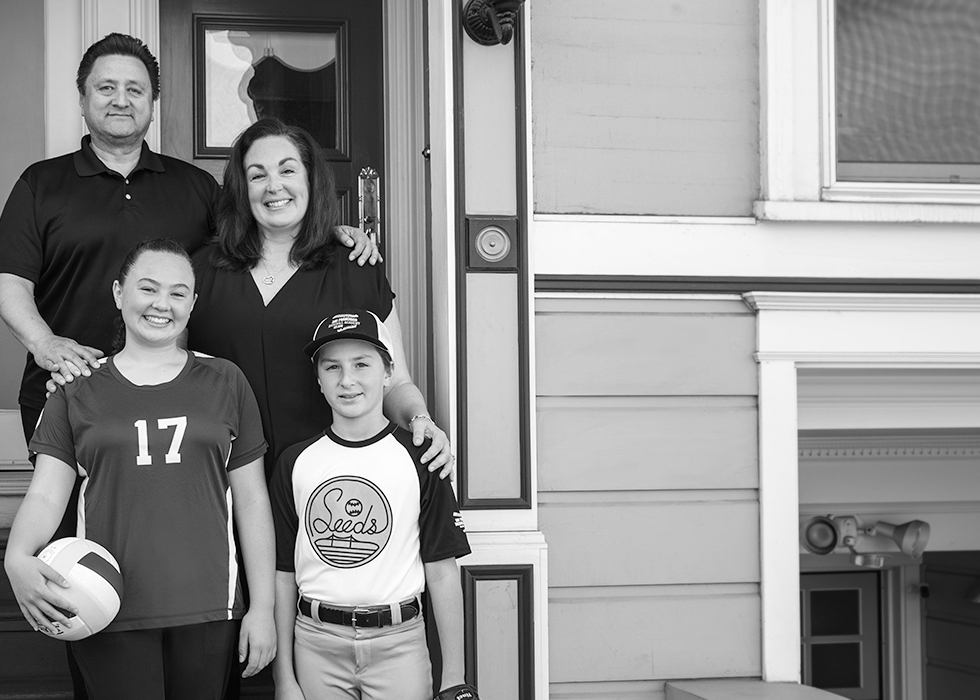5 Tips for Buying a Second Home
Buying a second home in the Bay Area or beyond is a big decision. Whether you’re looking at an idyllic vacation home in your favorite getaway spot or a nice piece of rental property to bring in some extra income, you should make sure you’re really ready and that you fully understand the process.
Costs involved with buying and maintaining a second home can start to add up. The costs also vary depending on how you’re using the property.
Your mortgage options will also depend on what your plans are for the home.
Here are 5 tips to help you understand how to buy a second home and if it’s the right decision for you. Keep reading or click on a topic to learn more.
- Identify your reasons for buying a second home
- Understand the costs
- Explore your financing options
- Qualify for a second-home mortgage
- Find the right real estate agent
Identify your reasons for buying a second home
There are many reasons you might want to buy a second home. You may even have multiple plans for a single property. These plans could include:
- You’re ready for a vacation home. Maybe you just want somewhere to go to get away from the hustle and bustle of your daily routine, or you’re looking for a perfect spot to live in when you retire.
- You want a commuter home. If you live far enough from work and face a daily commute that just isn’t making sense anymore, a commuter home could make sense if you can afford it.
- You want to invest in real estate. Buying a property to rent out to tenants can be a good source of extra, or even primary, income. It does come with risks, though. So make sure you’ve done your research and talked with your financial advisor.
- You want to upgrade. Maybe you’ve found a house you love in a great location but want to keep your current home as a rental property. If the finances add up, this could be a good reason to buy a second home.
- You’re looking to help a family member. Parents live too far away? Is there a home for your college student that’s closer to campus? If so, you might consider buying the property instead of renting.
Before you even start looking at houses or mortgage options on a second home, it’s important to be 100% clear about your plans for the property. How you use your second home affects your financing options, ongoing costs, and the type of home that fits your particular plans.
For example:
- If you’re looking for a commuter home or a house for your college student, buying a condo might make more sense that a single-family home.
- A rental house will need to appeal to tenants, so condition and location are key factors.
- A vacation home that’s too far away might not be worth it if you can’t make it out there often enough to justify the second mortgage.
Understand the costs
Buying your second home will probably seem familiar in a lot of ways. After all, you’ve already gone through the process when you purchased your current house.
But there are other factors beyond a second mortgage payment each month that you’ll have to consider. Second home mortgages and their qualification requirements are different from first mortgages.
Here are some of the costs of buying a second home you’ll want to consider:
- Insurance. Homeowners insurance on a second home typically costs a little more than a primary residence. You might also need a different type of insurance depending on how often the home is occupied. If it’s a rental property, short- or long-term rentals could also affect the price.
- Utilities. If you’re using the home as a rental property, the tenant may pay for utilities as part of the monthly rent. But you’ll want to do the math on how much it’ll cost to make the house livable and how much is reasonable for a monthly utility bill. Make sure those figures match up.
- Maintenance. Maintenance costs are going to apply if your second home is a vacation home, potential retirement spot, or rental property. These costs could include basic upkeep and seasonal maintenance. A property manager could help you here but could also cut into your bottom line.
- Vacancy Issues. If you’re planning to rent the home, make sure you’re able to cover the costs if the house goes unoccupied.
- Travel. If you’re vacation home is a long way from your primary residence, make sure to budget for those trips.
Above all, ask yourself if you’re truly financially ready. Have you met all your other financial goals, like saving for retirement or paying off high-interest debt? If not, you should probably wait on buying a second home.
Explore your financing options
Your financing options for buying a second home will likely depend on how you plan to use the property. Lenders generally offer different rates and have different qualifications for second homes as compared to rental properties.
If you need a jumbo loan to finance your purchase, most lenders will only consider the house a second home and not an investment property. However, you can still rent it out up to 14 days a year without getting into trouble.
A conventional loan will allow you to rent the second home for up to six months per year without it being qualified as an investment property – as long as you didn’t claim the home’s future rental income in order to qualify for the loan.
Government loans are generally not an option for second homes, regardless of how you plan to use the property. The Federal Housing Administration may make some exceptions for commuter homes.
Qualify for a second mortgage
Most lenders see second homes as riskier than first mortgages, whether they be vacation or rental properties. Because of this assumed risk factor, requirements for minimum credit scores are generally higher and maximum debt-to-income ratios are generally lower.
Additionally, you’ll probably need to make a larger down payment on your second home. This typically means roughly 10% for a conventional loan and more than 20% for a jumbo loan. While your initial upfront costs will be higher, you could save money in the long run if the bigger down payment means you get a better rate.
If you’re planning on using the property to generate rental income – either from the new property or from renting your current home after you move into the new home – there might be some additional challenges.
If you’re looking at a home that’s already a rental property where the seller is generating income and is willing to share that information, you shouldn’t have a problem. If the home isn’t currently being used to generate rental income, your lender might want to do a rental appraisal to show that the property is viable.
Find the right real estate agent
Whether you’re looking for a vacation home in a remote destination or a rental property in a desired, income-producing market, you’ll want to work with a real estate agent that understands that area.
If you’re looking to buy a second home in the San Francisco Bay Area, our Real Estate Officers have the expertise you need to get the mortgage you deserve. They understand the unique challenges of Bay Area real estate and are ready to get to know you and your specific plans for your second home.
Have more questions about buying a home? Or just general questions about loans? Check out our helpful articles in the Buying a Home section of our Learning Center.




